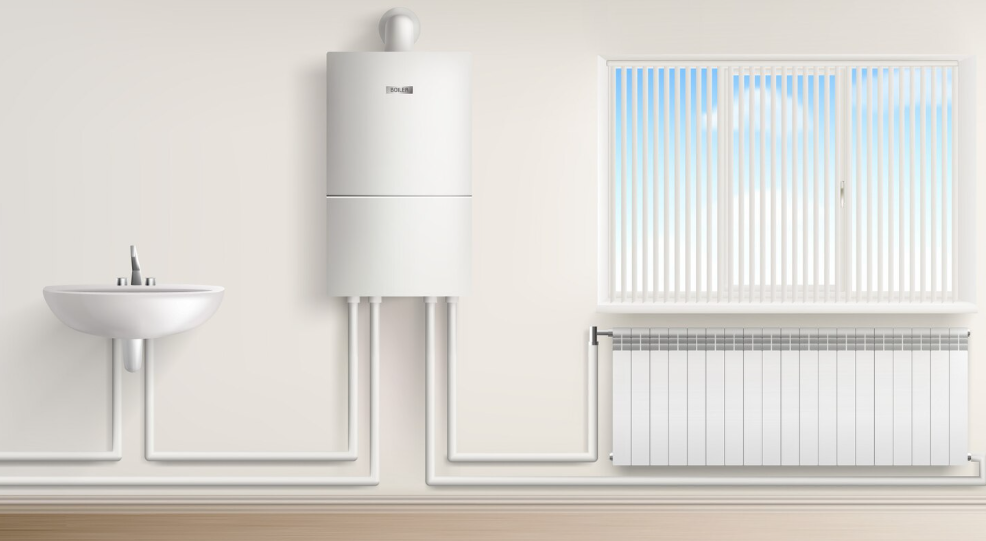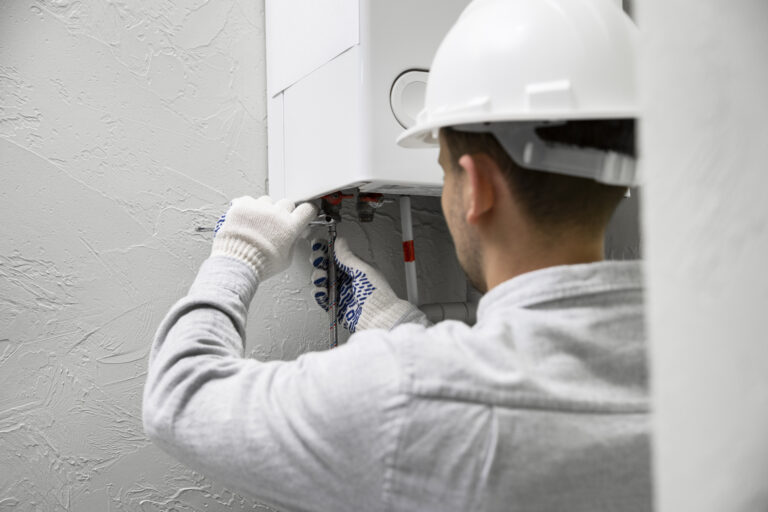
When it comes to providing a reliable and energy-efficient source of hot water, heat pumps have become the top choice for homes, villas, hotels, and even swimming pools. They’re eco-friendly, cost-effective, and designed to deliver consistent hot (and sometimes cold) water.
But just like any other appliance, heat pumps need regular maintenance to operate efficiently. Ignoring early signs of trouble can lead to reduced performance, higher energy bills, or even complete breakdowns.
Let’s explore the common signs that your heat pump water heater needs servicing, along with maintenance tips specific to each type — Air & Water Source, Reversible, and Multi Source heat pumps

Before we discuss the warning signs, it’s helpful to understand the types of heat pumps commonly used for water heating:
This type extracts heat from the surrounding air and transfers it to water — ideal for domestic hot water production in homes, hotels, and residential buildings
Designed for swimming pool applications, this model can both heat and cool pool water, ensuring comfortable temperatures year-round.
A versatile system capable of producing both hot and cold water, making it perfect for commercial and residential projects that need dual functionality.

Each of these systems operates differently, but all share one common need — regular servicing to maintain performance and efficiency.
If it’s taking longer than usual for your water to reach the desired temperature, your heat pump might be struggling. Common reasons include dirty evaporator coils, low refrigerant, or scaling inside the tank
For Air & Water Source and Multi Source systems, delayed heating can significantly affect domestic hot water supply.
If your shower alternates between hot and cold or your swimming pool water doesn’t stay at a stable temperature, it’s a sign your heat pump needs attention.
For Reversible models, this could mean issues with the reversing valve or the control sensors.
Regular servicing ensures heat pumps maintain steady temperatures for comfort and energy efficiency
A heat pump should operate quietly. If you hear rattling, grinding, or buzzing, it might be due to loose parts, fan imbalance, or compressor wear.
Addressing these noises early can prevent major damage to your water heating unit.
Even small leaks can indicate internal problems such as corroded connections or condensation buildup. Leaks can affect the performance of heat pumps and even cause short circuits if ignored.
For pool systems, ensure all fittings are sealed tightly, as external humidity can worsen moisture issues
If your energy consumption has suddenly increased, your heat pump might be losing efficiency due to internal strain or dirt accumulation.
A professional check-up helps restore performance, ensuring heat pumps deliver the same amount of hot water using minimal power.
If your domestic hot water has a metallic taste or unpleasant odor, sediment buildup in the tank could be the culprit. Regular flushing prevents bacteria and scale formation.
If your heat pump keeps running without cycling off, it may be due to thermostat calibration issues or refrigerant imbalance. Continuous operation wastes power and shortens system lifespan.
Regular servicing ensures that heat pumps operate in proper cycles for maximum efficiency.
For Reversible heat pumps, inconsistent pool temperature or prolonged heating time often indicates scale buildup on the heat exchanger or compressor inefficiency.
Routine inspection and cleaning help maintain precise temperature control and extend the system’s life.
Experts recommend servicing heat pumps every six months — ideally before summer and winter. Servicing includes coil cleaning, refrigerant checks, electrical inspections, and water tank flushing
While basic cleaning can be done at home, internal components like compressors, coils, and sensors require expert handling. Professional technicians can inspect all three types — Air & Water Source, Reversible, and Multi Source — ensuring that every part functions optimally.
Routine servicing not only improves heating efficiency but also prevents costly breakdowns, keeping your heat pump in perfect condition for years.
Your heat pump is the heart of your water heating system — whether it’s for your home, commercial building, or swimming pool. Paying attention to early signs like noise, leaks, or inconsistent temperatures can save you time, money, and energy.
Regular maintenance ensures heat pumps deliver steady hot water, lower energy bills, and long-lasting performance for all your domestic or pool heating needs.
Delayed heating often means the heat pump needs coil cleaning or refrigerant top-up to restore proper heat transfer
Unusual sounds in heat pumps indicate mechanical problems such as worn bearings or internal vibration that require immediate inspection.
A foul smell from water heaters often means heat pumps or tanks need internal cleaning and sanitization to remove bacterial growth.
Heat pumps should be serviced twice a year to maintain performance, efficiency, and long-term reliability